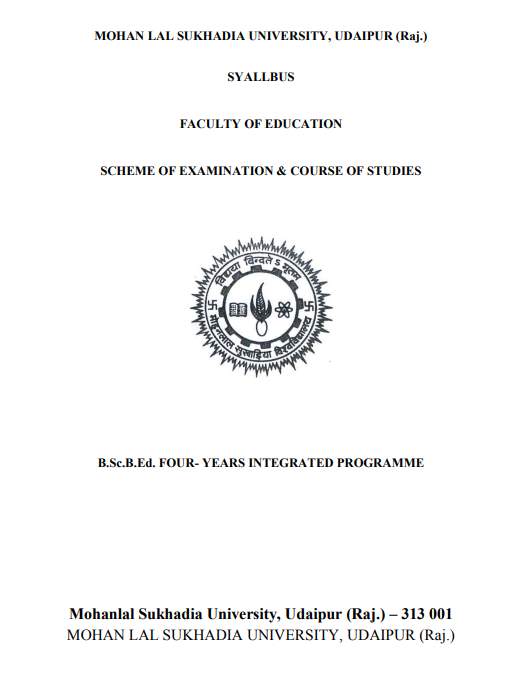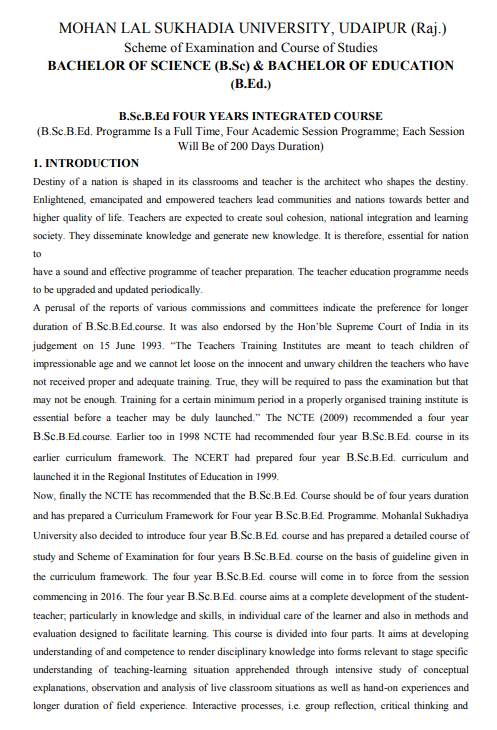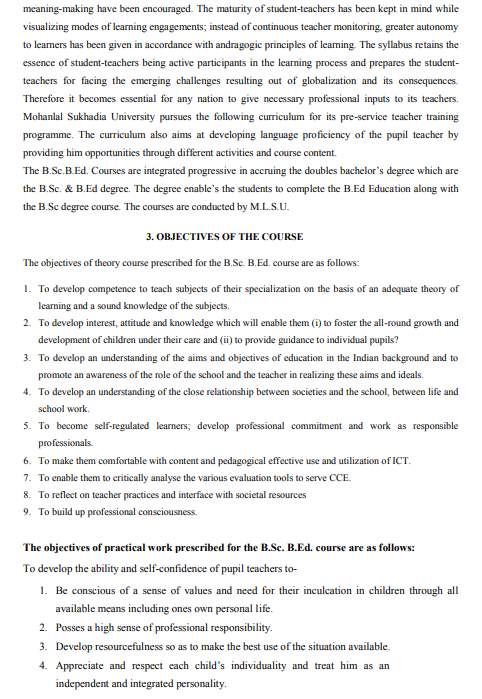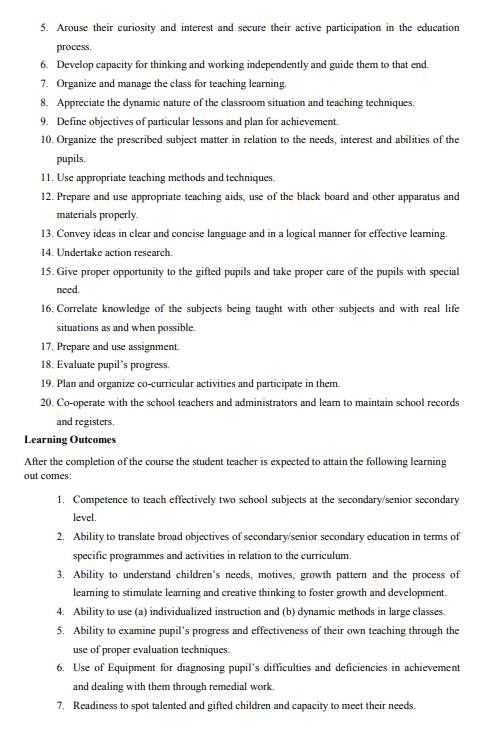|
#3
20th December 2019, 11:52 AM
| |||
| |||
| Re: Mohanlal Sukhadia University Rajasthan
The syllabus for B.Sc. B.Ed four years Integrated Course offered by the Mohan Lal Sukhadia University, Udaipur is as follows: Course 1 - CHILDHOOD & GROWING UP Objectives–After completion of the course the student teachers will be able to:- 1. Understand the Developmental characteristics of Childhood and adolescence. 2. Learn the Theories of development. 3. Understand Educational provisions of children at different stages of development. 4. Understand the Concepts and Components of Personality. 5. Know the Techniques of Personality Assessment. 6. Understand the Psycho-Analytic Theory of personality. 7. Understand the Concept and Importance of Mental Health and role of Teacher in Promoting Mental Health. 8. Acquire the Concept of Individual Variation and their Classroom Implications. 9. Understand nature and Characteristics of Intelligence. 10. Understand the Theories of Intelligence. 11. Acquire the skill of Measurement of Intelligence. COURSE CONTENT UNIT- I Basic Concepts of Child Development 1. Meaning, Scope and Importance of studying Child Development. 2. Methods of study of Children- Case Study, Observation and Field Studies. 3. Basic Concepts in Child Development-Growth V/S Development, Maturation V/S Learning, Heredity vs. Environment (Family, Neighborhood, School and Community) 4. Principles of Growth and Development 5. Stages of Development. UNIT- II Childhood 1. Developmental characteristics of Childhood with reference to Physical, Cognitive, Motor, Social, Emotional and Moral aspects. 2. Theories of Development- Piaget (cognitive), Erikson (Psychosocial) 3. Educational Implications of Development during Childhood. UNIT- III Adolescence 1. Characteristics of adolescence development- Physical, Cognitive, Social and Emotional. 2. Difficulties during transition period- Difficulties in Social Transition, Conflicts, Social Attitude and Behavior, Influence of Peers, Conformity and Self assertiveness and Personality Integration. 3. Impact of Urbanization, Economic, Social and Political changes on the construction and experience of adolescence. 4. Issues in adolescence - - Identity crisis; - Idealism and Hero worship - Gender Issues - Child Labor - Changing Family Structures - Peer Pressures - Pressure of Competition - Juvenile Delinquency 5. Critical analysis of significant events e.g. Sexual abuse, Harassment, Gender and Poverty. 6. Guidance and Counselling of adolescents. UNIT- IV Personality and Mental Health 1. Personality Concept, types and Components of Personality. 2. Psychoanalytic theory of Personality by Freud. 3. Factors affecting Personality development. 4. Assessment of Personality- Projective and Non-Projective Techniques. 5. Mental Health a) Concept and Importance b) Types of Conflicts and Defense Mechanisms c) Role of Teacher in Promoting Mental Health UNIT - V Individual Variations 1. Concept of Variation and Classroom, Implication with reference to Intelligence, Aptitude, Creativity, Emotional Stability, Social Adjustment, Self Concept and Interest. 2. Introduction to Socially disadvantaged children who are marginalized on account of class, caste, Language, ethnicity or gender, first class generation learners. (Focus should be to understand how different socio political realities construct different childhoods Within children’s lived contexts: Family, Schools, Neighborhood and Community through close Observation and interaction with children of different socio- economic and cultural backgrounds) Intelligence, Nature and Characteristics 3. Theories of Intelligence a) J.P. Guilford Structure of Intellect b) Howard Garden‟s Theory of Multiple Intelligence. c) Daniel Goleman‟s Model of Emotional Intelligence. 4. Measurement of Intelligence Types of Intelligence Tests – Verbal, Non- Verbal and Performance Tests. Syllabus B.Sc. B.Ed Integrated Course e Mohan Lal Sukhadia University, Udaipur     |